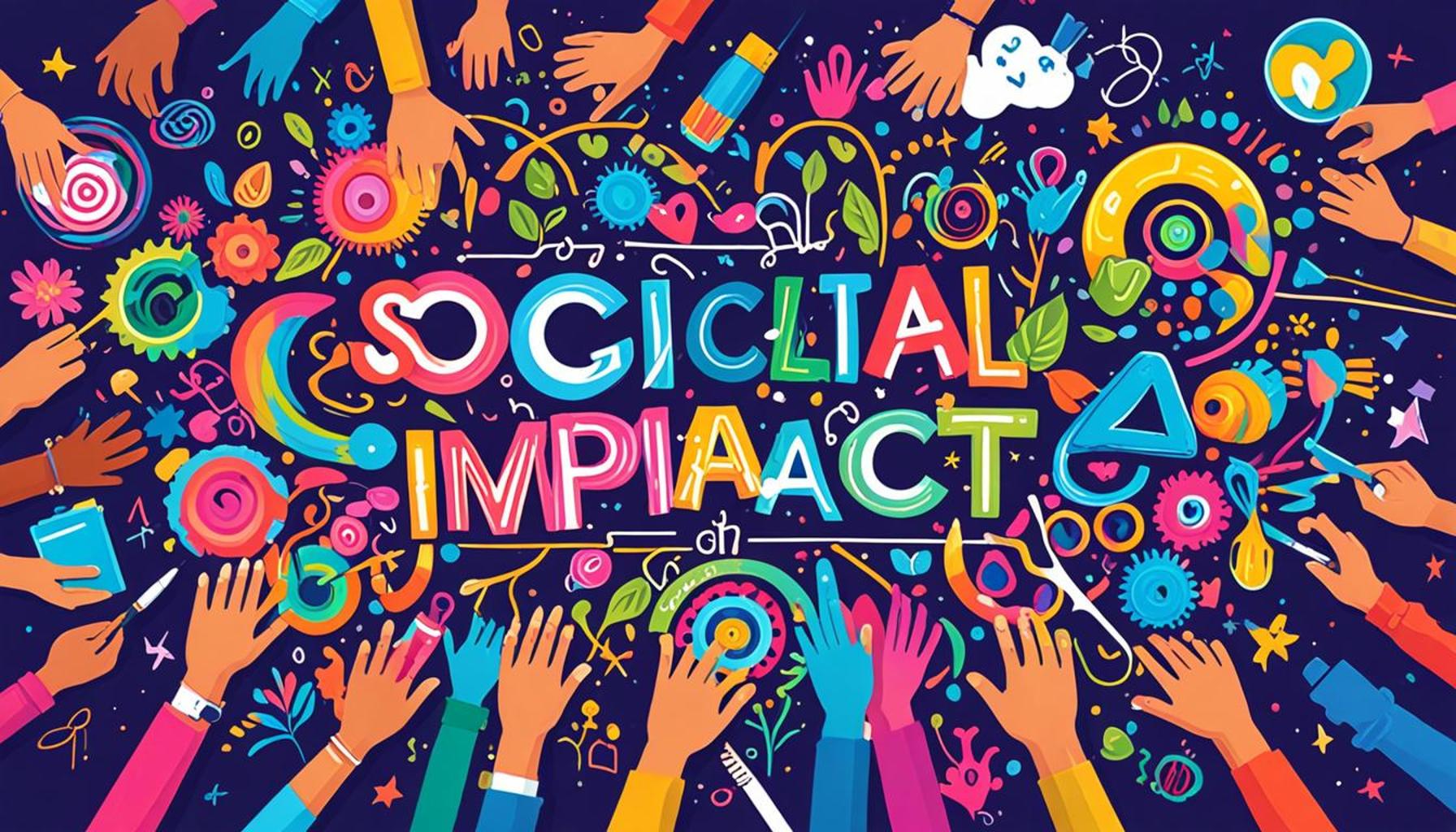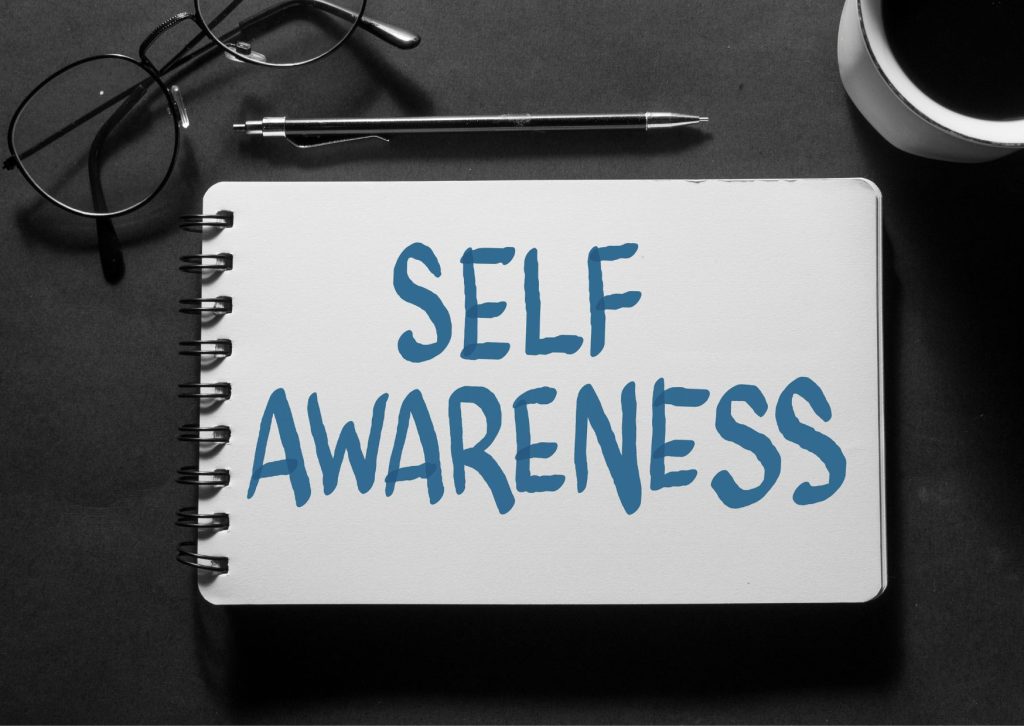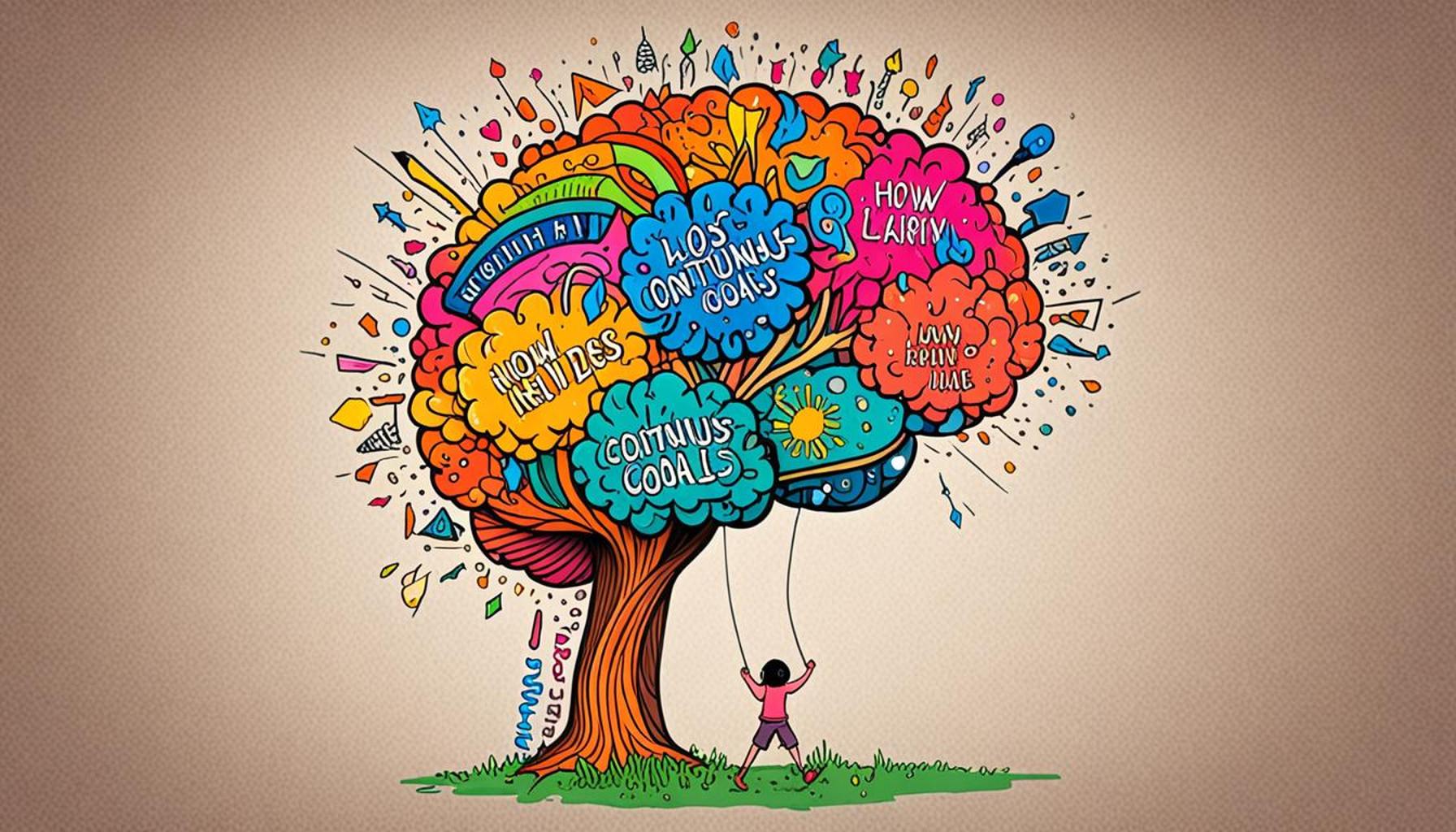Social Impact Goals: Defining Objectives that Contribute to the Community and Personal Growth

Delving Deeper into Social Impact Goals
In a world increasingly shaped by our collective actions, social impact goals have emerged as critical blueprints for fostering significant change within communities. These goals are not merely abstract concepts; they provide tangible pathways for individuals and organizations to make a positive difference and align their personal pursuits with the broader societal needs they serve. This alignment serves not only to uplift communities but also enhances the personal growth and fulfillment of individuals involved in these initiatives.
But what do social impact goals truly entail? Allow us to dissect this further, offering practical examples that illustrate their broad scope:
- Community Development: These initiatives focus on enhancing local infrastructure, such as building affordable housing, improving public transportation systems, or providing community centers where residents can gather and engage. For instance, in Lagos, community-led projects that repair roads or provide public spaces for recreation directly combat urban decay and improve residents’ quality of life.
- Education Accessibility: Goals aimed at equitable learning opportunities often target marginalized groups. Programs that offer scholarships to students from low-income families or establish mobile schools in rural areas work to bridge the educational divide. In Nigeria, initiatives like the “Teach for Nigeria” program utilize passionate educators to reach underserved communities, demonstrating the power of dedicated individuals in transforming education.
- Environmental Sustainability: Projects focused on promoting eco-friendly practices help combat climate change and reduce waste. Community clean-up days, tree planting campaigns, and promoting waste recycling are all actionable ways individuals can contribute. Notable efforts in Nigeria include the “Clean-up Nigeria” initiative, which brings together volunteers to tackle pollution and foster a sense of environmental responsibility.
- Cultural Preservation: In a nation rich with diverse cultures and traditions, efforts that maintain local customs and languages are vital. Organizations like the “Ajegunle Heritage Festival” celebrate cultural diversity by showcasing traditional music, dance, and art, emphasizing the importance of preserving Nigeria’s rich cultural tapestry.
In the Nigerian context, the implications of these social impact goals are particularly pronounced as various communities grapple with distinct challenges, ranging from poverty to inadequate healthcare. Establishing clear and actionable social impact goals equips citizens with the tools to direct their efforts toward achieving sustainable change. Importantly, the dual focus on community betterment and personal development invites everyone to engage with these impactful initiatives.
This article serves as a vehicle to explore the intricate processes of defining and pursuing social impact goals, showcasing how they can lead to enduring community success and fostering personal evolution. As we dive deeper, we aim to inspire you to consider how your own actions can initiate a wave of positive change within your immediate environment and beyond.
ADDITIONAL INSIGHTS: Expand your understanding here

Understanding the Significance of Social Impact Goals
To grasp the importance of social impact goals, it is essential to delve into their key components and the motivations that drive individuals and organizations to pursue them. At the heart of these goals lies the ability to implement change that is not only beneficial to a particular community but also facilitates personal growth for those engaged in the endeavor. This symbiotic relationship enhances community well-being while also fostering a sense of purpose and achievement for participants.
When defining social impact goals, it is crucial to consider their specific, measurable, achievable, relevant, and time-bound (SMART) characteristics. By adhering to the SMART framework, individuals and organizations can create clear directives that enhance their effectiveness. This clarity not only provides direction but also makes it easier to engage stakeholders, monitor progress, and evaluate outcomes.
In Nigeria, where social challenges are prevalent, the relevance of setting focused social impact goals cannot be overstated. For those looking to initiate impactful projects, consider the following aspects:
- Identifying Community Needs: Understanding the specific challenges faced by a community is the first step in establishing relevant social impact goals. Conducting surveys, holding focus groups, or simply engaging in dialogues with local residents reveals pressing issues—whether they are related to healthcare, education, or infrastructure—that require immediate attention.
- Cultivating Partnerships: Engaging with local organizations, government bodies, and businesses can amplify efforts significantly. For instance, collaboration with a health-focused NGO can enhance a community’s access to medical services while providing volunteers with valuable experience. Such partnerships not only strengthen initiatives but also foster a sense of collective responsibility.
- Encouraging Volunteerism: Mobilizing community members to participate in social impact projects brings diverse skill sets to the forefront. In Nigeria, initiatives such as “Give Back Nigeria” encourage citizens to dedicate time and resources to various causes, thereby building a culture of giving and fostering teamwork, which is instrumental for personal development.
- Measuring Impact: Establishing clear metrics allows organizations to assess progress and report successes. Whether it’s tracking improved literacy rates in educational programs or assessing the number of families provided with housing, measuring the outcomes of social impact goals is crucial for demonstrating effectiveness and justifying continued investment.
Ultimately, the pursuit of social impact goals in Nigeria serves a dual purpose: it uplifts communities and contributes to the personal growth of those who engage in these initiatives. As we navigate the complexities of our societies, making concerted efforts toward impactful objectives can lead to profound change. The key lies in understanding how to define these objectives and align them with both community needs and individual aspirations.
This exploration ultimately aims to shed light on the transformative power of well-defined social impact goals, inspiring readers to take actionable steps in their own lives, contributing positively to both their communities and personal development journeys.
| Objectives | Impact on Community |
|---|---|
| Empowering Local Entrepreneurs | Strengthen the local economy by creating job opportunities. |
| Enhancing Education Access | Provide resources and support to underfunded schools to elevate learning experiences. |
| Promoting Environmental Sustainability | Initiate community projects focused on renewable energy and waste reduction. |
| Fostering Mental Health Awareness | Create initiatives that reduce stigma and increase support systems. |
Social Impact Goals are essential in creating a foundation for sustainable change in communities. By defining clear objectives, individuals and organizations can align their efforts towards community engagement and personal growth. For instance, empowering local entrepreneurs not only stimulates the local economy but also fosters innovation and resilience among community members. Moreover, enhancing education access ensures that every child, regardless of background, has the tools necessary to succeed, thus breaking the cycle of poverty.Furthermore, promoting environmental sustainability addresses the urgent need for responsible resource management and eco-friendly practices, ensuring a healthier planet for future generations. Lastly, fostering mental health awareness creates a supportive environment that encourages open dialogue, reducing stigma, and enabling individuals to access necessary resources. This multifaceted approach to social impact underscores the interconnectedness of community well-being and personal development, positioning individuals to lead fulfilling lives with a focus on societal contribution.
CHECK OUT: Click here to explore more
Navigating Strategies for Effective Social Impact Goals
Having established the significance and relevance of social impact goals, the next step involves implementing effective strategies that drive these objectives. Success in achieving these goals requires a multi-faceted approach that encompasses planning, execution, and continuous adaptation. Various methodologies, tools, and considerations can enhance the effectiveness of social impact initiatives, ensuring that they lead to substantial community benefits and personal development.
1. Engaging Stakeholders: Building relationships is critical when formulating social impact goals. Identifying and engaging stakeholders—including beneficiaries, local leaders, government representatives, and potential funders—provides a holistic view of the community’s needs and aspirations. In Nigeria, community leaders often hold significant influence over local perceptions and can help facilitate access to resources or connections. Workshops and community forums create a platform for stakeholders to co-create solutions, ensuring buy-in and collaboration that strengthens the foundation of social initiatives.
2. Leveraging Technology: In today’s digital age, technology plays a pivotal role in the successful implementation of social impact goals. Utilizing social media platforms, mobile apps, and online donation systems can enhance awareness and participation. For example, platforms like “GoFundMe” and “Donorbox” have gained traction in Nigeria, allowing individuals with compelling community projects to raise funds efficiently while also keeping donors informed about impact metrics. Moreover, employing data analytics can help track changes within the community, offering real-time feedback that promotes dynamic strategies.
3. Fostering Education and Capacity Building: An integral aspect of achieving social impact goals lies in empowering community members through education and skill development. Initiatives like vocational training programs or literacy campaigns can create pathways for personal and professional growth. Organizations can establish mentorship programs that connect youth with industry professionals, fostering knowledge transfer and widening professional networks. The expansion of education initiatives can spark innovation and sustainable economic growth, contributing to the larger social fabric of Nigeria.
4. Promoting Sustainability: Sustainability is not only an environmental concern but also applies to the longevity of social initiatives. Projects should consider long-term viability from the outset. For instance, initiatives focused on providing clean water should also include training on maintenance and management of systems to ensure continued benefit. Engaging local governments and businesses in discussions about sustainable development goals can enhance resource allocation and help maintain momentum for continuous improvement.
5. Celebrating Success Stories: Highlighting the successes of social impact initiatives encourages continued participation and attracts new volunteers and sponsors. Sharing stories of individuals whose lives have been positively transformed—such as a student gaining access to education, or families benefiting from improved healthcare—fuels motivation and inspires others to get involved. Utilizing local media channels to broadcast these achievements can greatly amplify the message and draw attention to ongoing needs in specific communities.
Each of these strategies emphasizes a systematic approach to defining and pursuing social impact goals, ensuring that they resonate deeply with community members while fostering individual growth. As more individuals and organizations embark on this journey, the collective impact on Nigerian society becomes more pronounced, leading to a ripple effect of positive change that enhances both community welfare and personal development.
RECOMMENDED: Check out this similar article
Conclusion: Embracing the Future of Social Impact
As we reflect on the critical role of social impact goals in fostering community welfare and enhancing personal development, it becomes evident that a collaborative mindset is essential. The journey toward achieving these objectives hinges on a unified effort, where stakeholders from various fields come together to identify and address the unique needs of their communities. Engaging with different voices, harnessing technological advancements, investing in educational initiatives, and championing sustainability can create an ecosystem ripe for change.
The power of storytelling cannot be overstated; by celebrating success stories, we uplift entire communities and inspire individuals to envision a better future. This ripple effect not only motivates others to take part but also showcases the tangible benefits of participating in social initiatives. By connecting personal growth with broader community objectives, individuals find purpose and fulfillment, consequently driving a movement towards collective empowerment.
In Nigeria, where challenges such as poverty, education inequities, and healthcare access persist, the drive towards well-defined social impact goals offers a beacon of hope. It is imperative for organizations, government entities, and private sectors to collaborate strategically and embrace a holistic approach to social change. As we look ahead, the potential for transformative change remains vast. Thus, the challenge is clear: let us redefine the landscape of social impact by establishing measurable objectives that not only promote community engagement but also fuel personal growth, creating a stronger and more resilient society.


